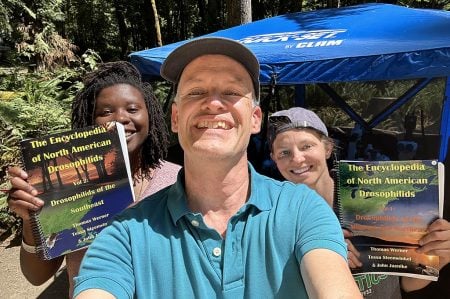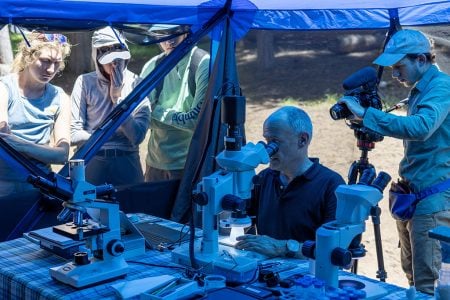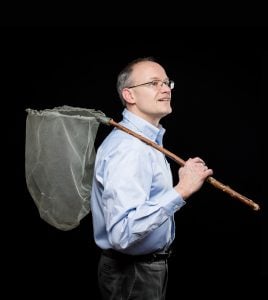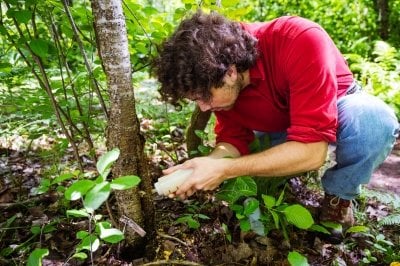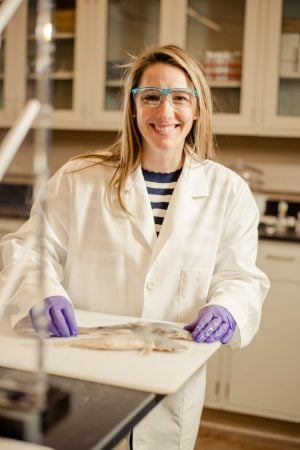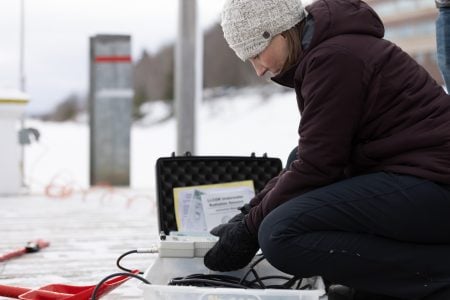College of Sciences and Arts Entomologist Celebrates Release of Third Volume on Fruit Flies
What do super-rare fruit flies, a children’s bedtime story, and more than four years of research have in common? They’re all ingredients in The Encyclopedia of North American Drosophilids Volume 3: Drosophilids of the Northwest, authored by Thomas Werner (BioSci).
Werner, a North American fruit fly expert, professor of genetics and developmental biology, and entomologist at MTU, is celebrating the release of the third volume in his encyclopedia series documenting fruit flies across the continent — and Huskies are invited. The Michigan Tech release party is planned from 3-5 p.m. on Wednesday, April 9, in Library 243 and 244.
“The book is not so much about new discoveries, but instead is a comprehensive field guide to all drosophilid species inhabiting the Northwest of the U.S. mainland,” said Werner.
He will be joined by his two co-authors, Tessa Steenwinkel and John Jaenike, and illustrator Natalia Werner at the event.
Come pick up an autographed bookmark! Printed copies of Volume 3 will be available for guests to peruse. Refreshments will be served.
Read more about Volume 3 at the College of Sciences and Arts Newsblog.
About Thomas Werner
Very broadly defined, Dr. Thomas Werner is an entomologist who works on different biological questions in drosophilids (“fruit flies”) and lepidopterans (butterflies and moths). One quarter of his research has been published in the journals: Nature, Science, Cell, and PNAS. Werner has received more than $900,000 in total funding, most of which came from the NIH and NSF. He has research-mentored 107 undergraduate students and 7 graduate students. He was bestowed with the state-wide Michigan Distinguished Professor of the Year Award 2021. Dr. Werner has also won Michigan Tech’s Distinguished Teaching Award twice (only three other faculty have won it twice in the history of Michigan Tech) for teaching Immunology, Genetics, Genomics, and Developmental Biology. He also discovered a new species of fruit fly, which he named after his student Tessa Steenwinkel, who won 9 research awards (e.g., the NSF Graduate Research Fellowship and the Barry Goldwater Fellowship) and published 15 articles/books under Thomas’s mentorship. The species is called Amiota tessae. Furthermore, Dr. Werner is the founder of the open-access book series “The Encyclopedia of North American Drosophilids”, which serves the Drosophila research community, students, and teachers with currently three published volumes and nearly 10,000 worldwide downloads. These books transformed two campus libraries (U. of Rochester, NY and Michigan Tech) into open-access book publishers, promoting science and education at no cost.
About the Biological Sciences Department
Biological scientists at Michigan Technological University help students apply academic concepts to real-world issues: improving healthcare, conserving biodiversity, advancing agriculture, and unlocking the secrets of evolution and genetics. The Biological Sciences Department offers seven undergraduate degrees and three graduate degrees. Supercharge your biology skills to meet the demands of a technology-driven society at a flagship public research university powered by science, technology, engineering, and math. Graduate with the theoretical knowledge and practical experience needed to solve real-world problems and succeed in academia, research, and tomorrow’s high-tech business landscape.
Questions? Contact us at biology@mtu.edu. Follow us on Facebook and Instagram for the latest happenings.
